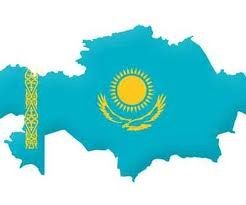ASTANA (TCA) — Kazakhstan will take a number of comprehensive measures to ensure the country’s macroeconomic stability, Minister of National Economy Timur Suleimenov said at a press conference on August 29, the official website of the Prime Minister of Kazakhstan reported.
The Minister said that work will be done to restore the stimulating role of monetary policy and bring fiscal policy to new economic realities.
Since the beginning of 2017, the Kazakh economy has been showing signs of economic activity improvement: GDP grew by 4% and, in July, annual inflation fell to 7.1% and approached the minimum over the past two years.
The increase in economic activity is to a great extent due to the non-primary sector. According to calculations, the contribution of the raw materials sector to economic growth was 1.4%, while the contribution of the non-primary sector was 2.3%.
The state budget deficit is planned to decrease from 3.1% of GDP in 2017 to 1.0% of GDP in 2019-2020, which will help to keep the public debt at the level of no more than 27% of GDP. The effectiveness of budget expenditures is planned to be achieved by redistributing funds from ineffective programs to budget programs that ensure economic growth.
In this regard, a draft law has been drafted that provides for measures to improve the efficiency of budget expenditures, as well as simplification of budgetary procedures for faster and more efficient providing of funds to the real economy.
In addition, in order to bring the tax policy to new economic realities, changes in tax legislation have been developed. The task of stimulating the exit of business from the shadow and expansion of the tax base in the non-primary sector will be achieved by improving the collection of VAT, reforming special tax regimes, and introducing international standards against money laundering.
In addition, the Government conducted a full inventory of subordinate organizations, which resulted in an increase in the number of state-owned organizations subject to privatization to 903, including 68 large organizations. In 2018 it is expected to complete the sale of facilities under the Comprehensive Privatization Plan for 2016-2020, with the exception of the 17 largest companies of the Samruk-Kazyna Fund, the implementation of which requires thorough and detailed preparation.








